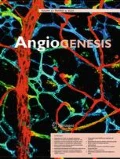Abstract
Systemic capillary leak syndrome (SCLS) is a syndrome caused by many reasons and without a definitive mechanism. The main diagnostic criteria of SCLS are hemoconcentration, hypoalbuminemia, and hypotension. Though most SCLS improved spontaneously within a few days, it can be life-threatening without effective treatments. In previous literature, vascular endothelial growth factor (VEGF) inhibitor had shown its potential to be an effective treatment, but the treatment outcomes were inconsistent. This article was about a 58-year-old female suffering from refractory systemic capillary leak syndrome after bone marrow transplantation and being treated with bevacizumab, a VEGF inhibitor. In comparison with other successfully treated cases, this patient received four cycles of bevacizumab treatment without symptomatic improvement and eventually died in the intensive care unit. Further studies are needed to further confirm the role of bevacizumab in the management of SCLS.

References
Shin JI, Lee KH, Lee IR et al (2018) Systemic capillary leak syndrome (Clarkson Syndrome) in cancer patients: a systematic review. J Clin Med 7(11):418
Lesterhuis WJ, Rennings AJ, Leenders WP et al (2009) Vascular endothelial growth factor in systemic capillary leak syndrome. Am J Med 122(6):e5-7
Yabe H, Yabe M, Koike T, Shimizu T, Morimoto T, Kato S (2010) Rapid improvement of life-threatening capillary leak syndrome after stem cell transplantation by bevacizumab. Blood 115:2723–2724
Kouadri G, Perzo N, Sauvetre G, Lévesque H, Besnier E (2021) Refractory severe idiopathic systemic capillary leak syndrome successfully treated with bevacizumab: a case report. Angiogenesis 24(3):399–401
Hoyer RJ, Leung N, Witzig TE, Lacy MQ (2007) Treatment of diuretic refractory pleural effusions with bevacizumab in four patients with primary systemic amyloidosis. Am J Hematol 82(5):409–413
Funding
This research received no specific grant from any funding agency in the public, commercial, or not-for-profit sectors.
Author information
Authors and Affiliations
Corresponding author
Ethics declarations
Conflict of interest
The authors declare that there are no conflicts of interest.
Additional information
Publisher's Note
Springer Nature remains neutral with regard to jurisdictional claims in published maps and institutional affiliations.
Rights and permissions
About this article
Cite this article
Wang, P., Chan, CH., Chen, HF. et al. Refractory systemic capillary leak syndrome treated with bevacizumab: a case report. Angiogenesis 25, 9–11 (2022). https://doi.org/10.1007/s10456-021-09813-6
Received:
Accepted:
Published:
Issue Date:
DOI: https://doi.org/10.1007/s10456-021-09813-6

